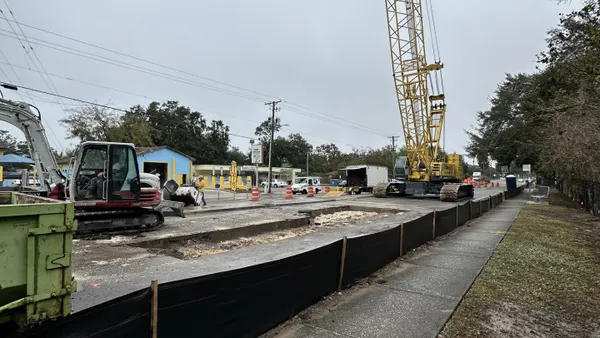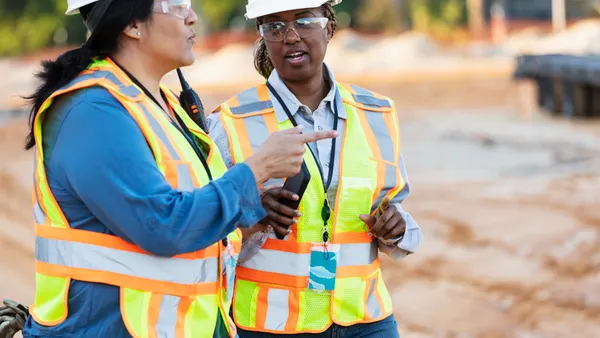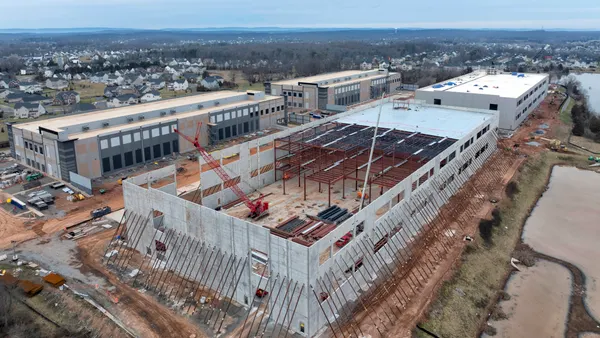Dive Brief:
- Three workers were injured Feb. 15 while working on the $2.3 billion, 21-mile I-4 Ultimate project in Orlando, Florida, the Orlando Sentinel reported.
- The three individuals, all reportedly employees of general contractor SGL (Skanska, Granite and Lane) Constructors, sustained minor injuries when they fell 15 feet from an elevated platform while pouring concrete. Emergency responders told WFTV 9 that the trio fell after a section of formwork gave way. SGL Constructors told WFTV that work was halted temporarily at similar platforms along the project so that they could be inspected.
- Construction on the I-4 project had restarted just four days earlier. It had been shut down since Feb. 4 after a 59-year-old worker was hit in the head by a 20-foot-long iron pipe and died. He was the fourth worker fatally injured while working on the project.
Dive Insight:
The first fatality on the I-4 project occurred in February 2016 when an SGL employee, 34-year-old Marvin Franklin, was run over by a dump truck filled with dirt. Then in December of that year, 59-year-old Curtis Copley, an employee of I-4 subcontractor Central Florida Underground, was killed when he was struck by a piece of steel equipment. In March 2018, Michael Tolman, 56, was killed when a rebar cage fell on him. Tolman was an employee of one of SGL’s subcontractors, Shelby Erectors.
These deadly accidents underscore how dangerous highway construction can be. Keeping tabs on the heavy equipment in use, the workers at high elevations and all of the scopes of work going on simultaneously on the jobsite that extends for miles is no simple feat. Highway projects that have construction personnel performing work alongside active traffic lanes pose great dangers to workers as well.
The Center for Construction Research and Training (CPWR) released a report in September that analyzed the latest available data from the Bureau of Labor Statistics that showed about 50% of road construction site deaths were a result of struck-by incidents involving trucks or equipment. Workers performing the duties of crossing guard or paving/surface operator were at the highest risk of being killed on the job, the report said.
CPWR said that the most road construction site deaths — more than 70% — occurred during the course of street, bridge and highway work, and that from 2011 to 2016, twice the number of workers were killed performing road construction than workers in all other industries, including utilities and transportation, combined.
To help prevent road construction deaths, CPWR suggested safety measures including: more lighting; reflective clothing; barriers; engineering and traffic controls; warning systems for both workers and drivers; and more worker training about the potential risks.










